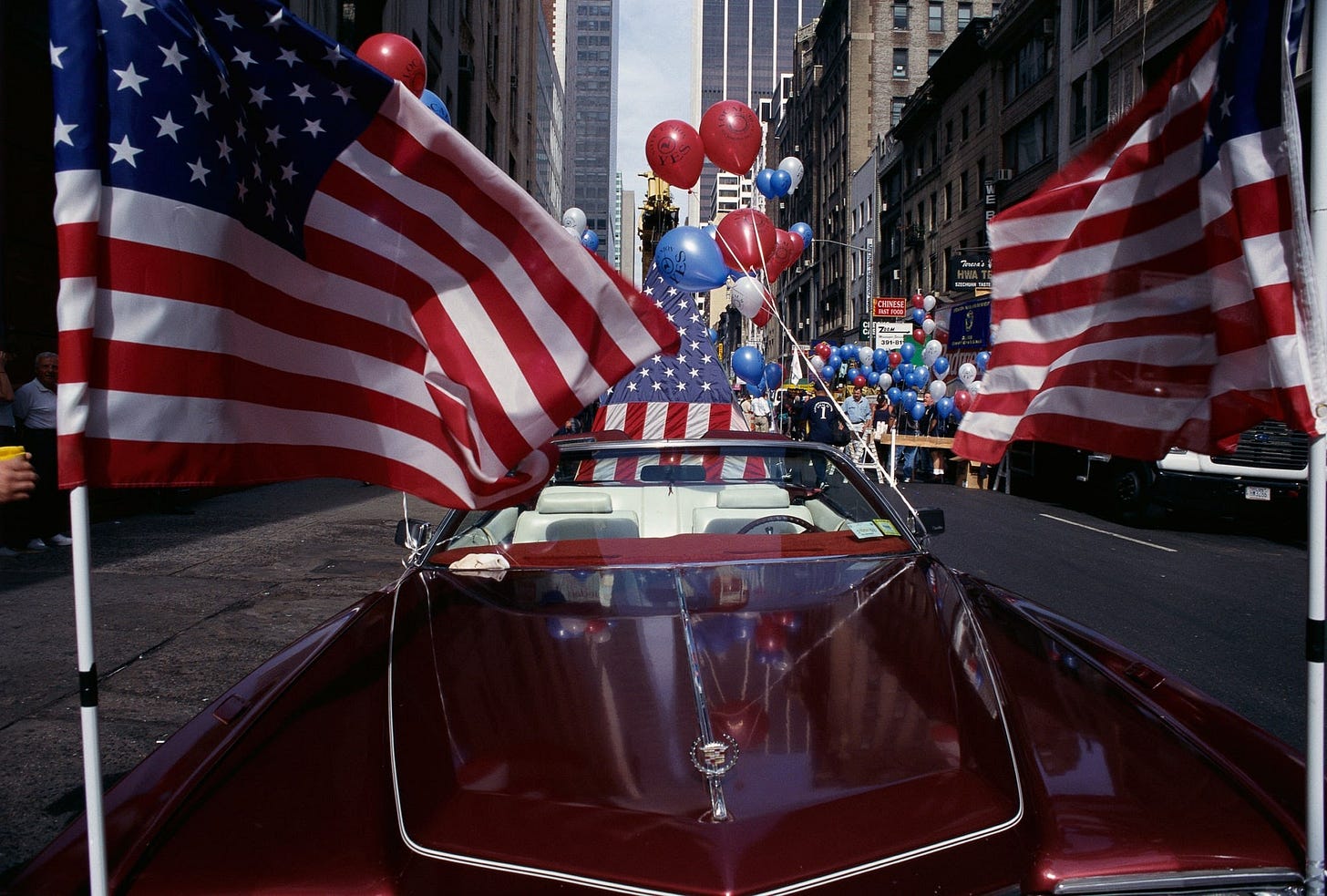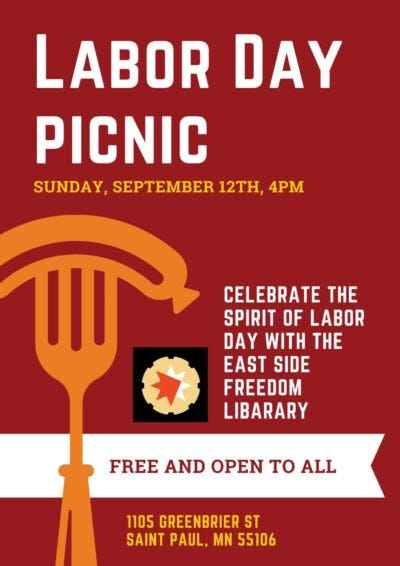Barbecues, weekend sales, worker protections: Labor Day is here!
Plus: it’s the 100th anniversary of the Battle of Blair Mountain, looking at access to vaccines for workers, and solidarity with Starbs.
Labor Day means way more than retailers competing to give you 50-70% off their products. Per History.com:
As manufacturing increasingly supplanted agriculture as the wellspring of American employment, labor unions, which had first appeared in the late 18th century, grew more prominent and vocal. They began organizing strikes and rallies to protest poor conditions and compel employers to renegotiate hours and pay.
Many of these events turned violent during this period, including the infamous Haymarket Riot of 1886, in which several Chicago policemen and workers were killed. Others gave rise to longstanding traditions: On September 5, 1882, 10,000 workers took unpaid time off to march from City Hall to Union Square in New York City, holding the first Labor Day parade in U.S. history.
In the wake of this massive unrest and in an attempt to repair ties with American workers, Congress passed an act making Labor Day a legal holiday in the District of Columbia and the territories. On June 28, 1894, President Grover Cleveland signed it into law.
Labor economist Teresa Ghilarducci describes for MarthaStewart.com the difference between International Worker’s Day or May Day, and Labor Day:
"When labor leaders were hanged for conspiracy in the Haymarket Riots in Chicago in 1886 during a rally supporting [strikes] and the workers' fight for a 10-hour day at the McCormick Harvester plant (turned to international Harvester, and now Navistar), there was a worldwide cry to have an international workers day to honor the American labor leaders," says Ghilarducci. "That international worker's day was [unofficially] declared May 1 (the Haymarket rally was that first week of May)."
Shortly after this fatal event, though, American politicians decided against making the holiday on this day in May, called May Day around the world. "There were big parades and big celebrations and festivals, May Day around the world was becoming more popular and associated with the Soviet Union and communism and socialism," explains Ghilarducci. "So, the American elite worried about that popularity [and] wanted to create a distraction away from May Day." Instead, they aligned with the original date request from the labor movement leaders in 1883 to have the first Monday in September as Labor Day in America.
Another piece of important labor history to remember this weekend is that it’s the 100th anniversary of the Battle of Blair Mountain.
Read: Dave Kamper (@dskamper), a Senior State Policy Coordinator at the Economic Policy Institute, writes about the historic battle and how the PRO Act would protect worker power.
Read: Vice President of Friends of Blair Mountain Chuck Keeney’s thread.
Watch: Explore the battlefield with Keeney and discover remnants of the conflict in the land.
🌭 Celebrate the labor movement with community!
Attend East Side Freedom Library’s labor solidarity picnic from 4-7pm on September 12! There will be refreshments, games, music, and chairs outside on the front lawn. Attendees are asked to wear masks unless eating.
Featured on Workday:
Hamilton Nolan (@hamiltonnolan) from In These Times reports on Starbucks workers unionizing in Buffalo, NY. (As a former Starbucks “partner” I’m so excited about this news! From the people who grow coffee to the people who roast it and package it to the baristas who serve you, they all deserve protection.)
This piece by Ray Levy Uyeda (@raylevyuyeda) from Prism on paid sick leave and access to vaccines for workers.
Any questions or comments on labor history or vaccine mandates in the workplace?
I would like an iced caramel macchiato please with extra worker protections and a few pumps of revolution. We are each other’s harvest.





